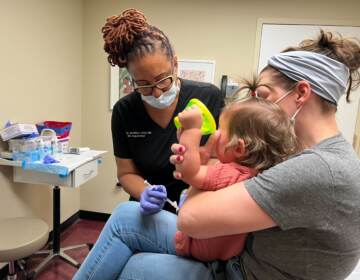Food donations flood hospitals as pandemic surge begins
As the COVID-19 pandemic ramps up, Philly area hospitals begin accepting daily donations of food for staff.
Listen 3:45
At Einstein Medical Center Montgomery, Chief Nursing Officer Annmarie Papa (left) and Chief Operating Officer Beth Duffy accept a donation of bagels and croissants from Four Worlds Bakery. (Emma Lee/WHYY)
One day last week, 45 pizzas suddenly showed up at Einstein Medical Center in East Norriton, Pennsylvania.
The next morning, about 200 fresh croissants and bagels arrived in the back of a Subaru hatchback driven by a volunteer. It came from Four Worlds, a bakery in West Philly about 35 miles away.
The hospital’s chief nursing officer, AnnMarie Papa, grabbed a face mask and a rolling cart to meet the delivery in the parking lot. It was not the first, nor would it be the last time she would bring stacks of donated food inside for her staff.
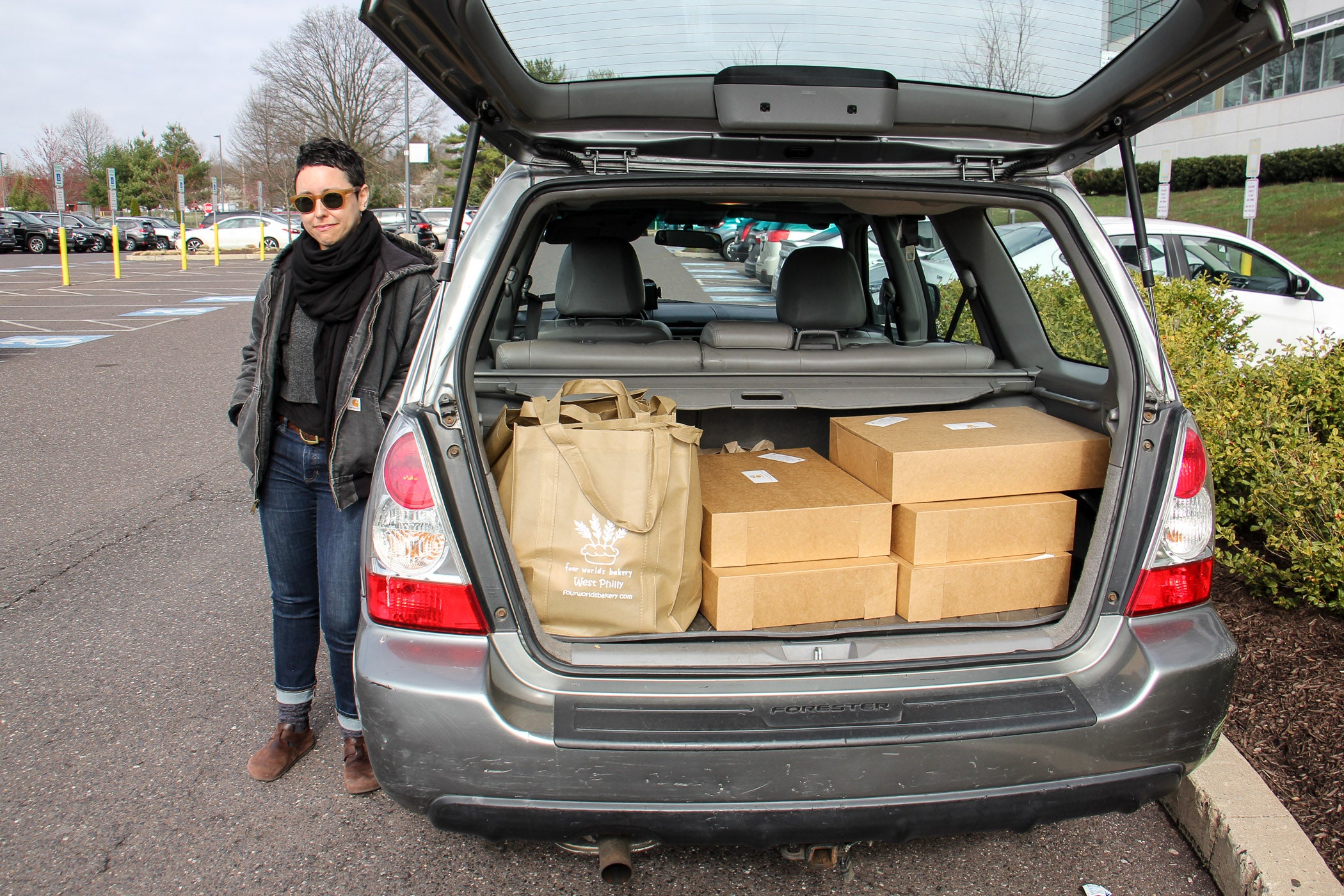
“We can support our staff, but it’s the little kindnesses we might not have time to do, that you all took care of for me,” she said. “With a delivery like this we don’t have people coming in and out and delivering things for themselves. So there’s less traffic coming in and out of the hospital, which is what we need to do to flatten this curve.”
As the COVID-19 pandemic has started to impact local hospitals, more and more area restaurants are reacting by sending over so much food that some hospitals have had to set up systems to receive and distribute it. The Einstein campus is asking people to call ahead to schedule so they don’t have spikes of donations. Effectively, they need to flatten the food curve.
It’s all accepted with gratitude.
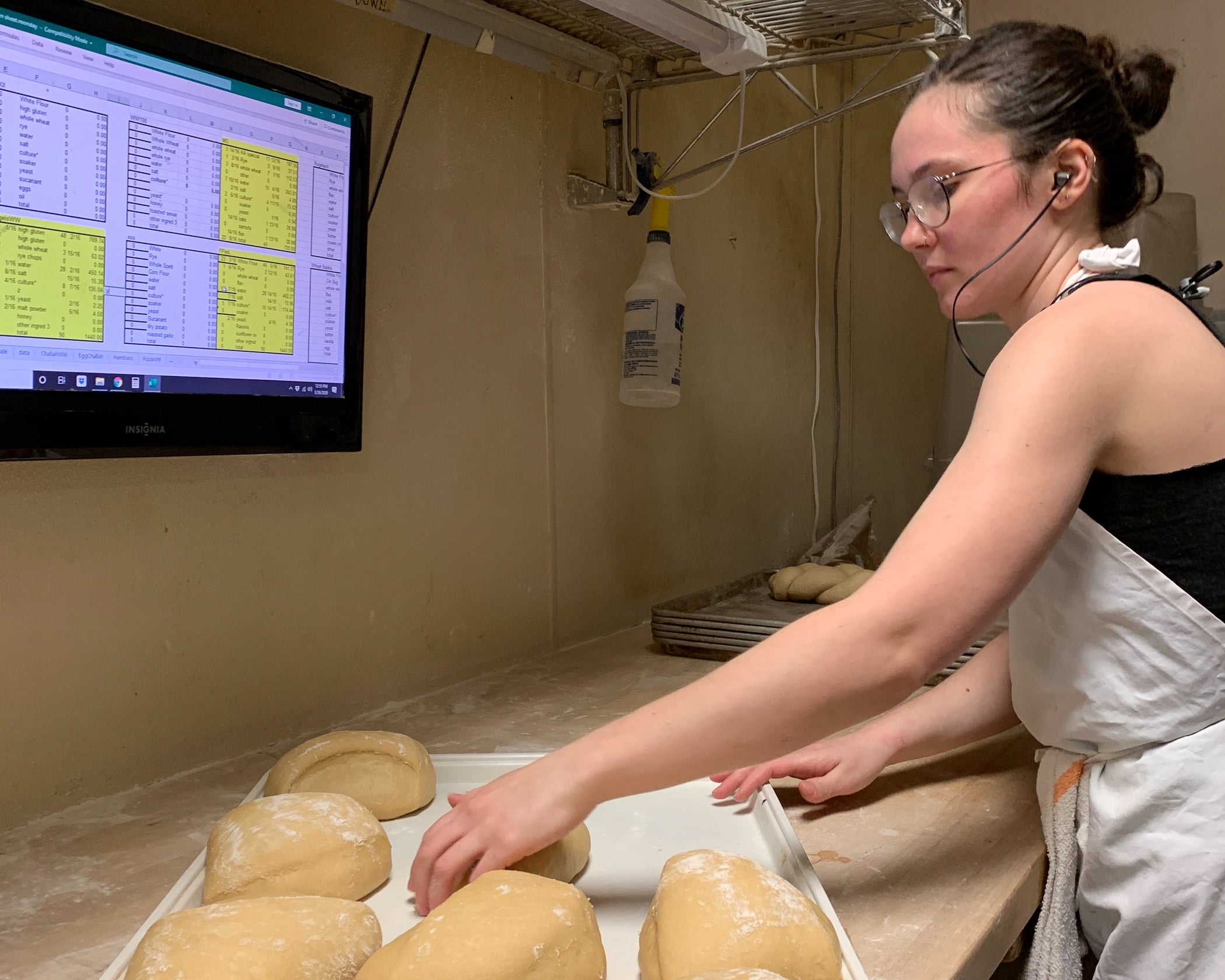
“The anxiety related to COVID exists out in the community, but I don’t know if people understand the level of anxiety that exists among our staff,” said Einstein president and COO Beth Duffy, who gets a little choked up when she talks about her staff of about 500.
“You have to wear so much protective equipment, and it’s hot and heavy and anxiety-provoking,” she said. “We need to make sure they get an emotional break from that. This kind of donation really allows us to do that.”
Starting today, Einstein will be getting regular deliveries from Sweetgreen, a national healthy fast food chain that has begun creating “outpost stations” in area hospitals: delivery people will put the food on semi-permanent shelving where hospital staff can grab it without ever having to interact.
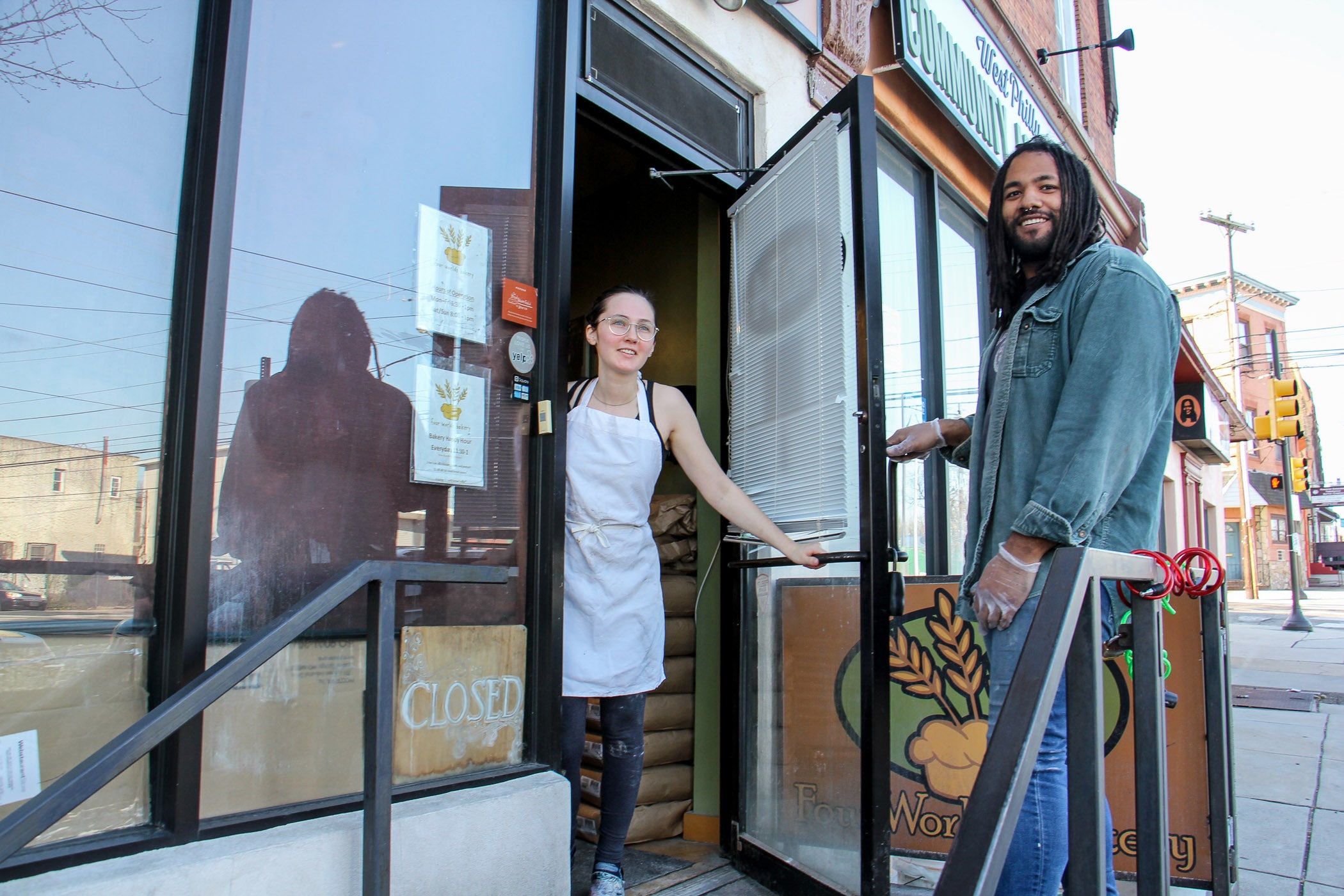
So far they are at Jefferson University and Children’s Hospital of Philadelphia, as well as well as hospitals in New York, Los Angeles, and Washington DC.
The kitchen at the local Jet Wine Bar in Center City is setting up a delivery system this week for front-line medical staff.
Four Worlds Bakery, the one that sent over those 200 croissants and bagels, got its delivery system in place relatively quickly. For more than a week it has been bringing a load of baked goods to one hospital a day, every morning.
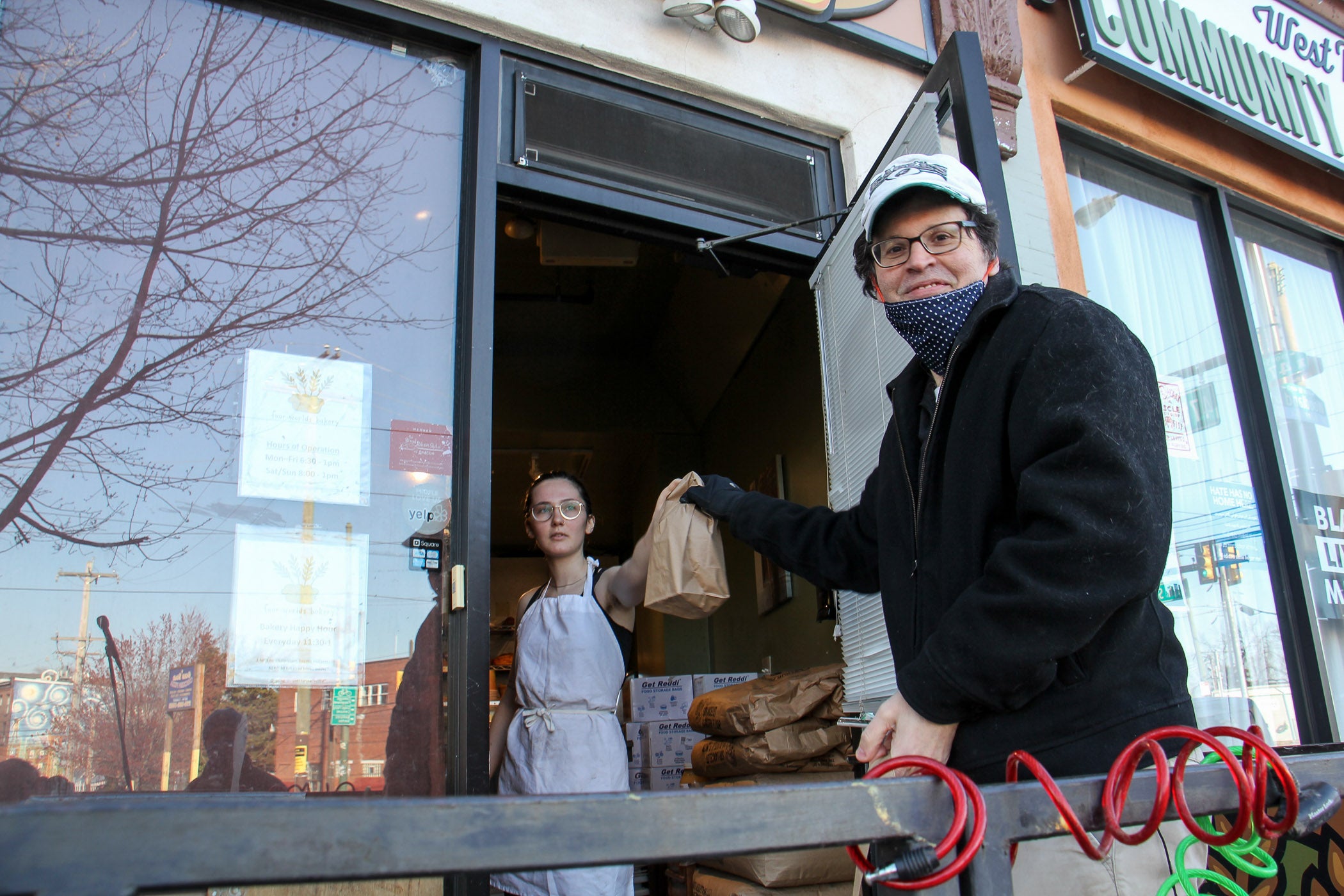
It’s not just good for the hospitals, it’s good for the bakery, said owner Michael Dolich. He has had to close his shop to customers entirely. Only bakers are allowed inside. Even Dolich himself is not allowed inside his own store, for safety reasons.
“I haven’t been in the bakery for six days,” said Dolich Thursday, standing on the sidewalk outside his storefront at Woodland Ave. and 47th Street. “The bakers wouldn’t let me in there because my wife works in health care. She’s a midwife at a hospital. So they took over the bakery with my blessing.”
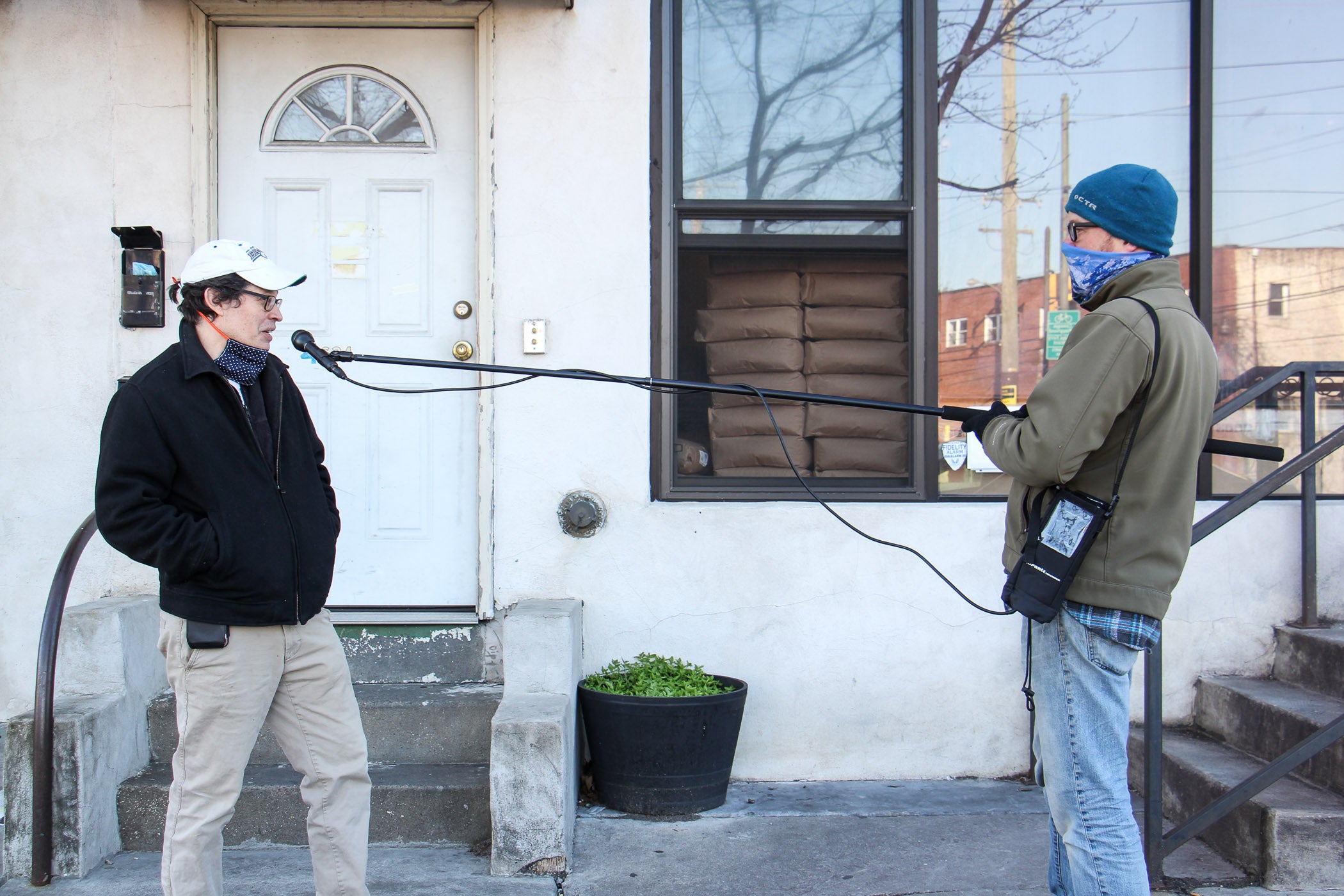
A small bakery like Four Worlds needs to be able to produce a certain amount of bread in order to make it financially worthwhile to fire up the ovens and bring in bakers. Right now, with no retail customers and only wholesale business to local grocery stores, there just isn’t enough market to keep his bakers employed.
There are also increased safety demands. Bakers have to spend extra time sanitizing the kitchen, over and over. The bakery has given up on one of its popular items – croissants – and focusing just on bread loaves and bagels.
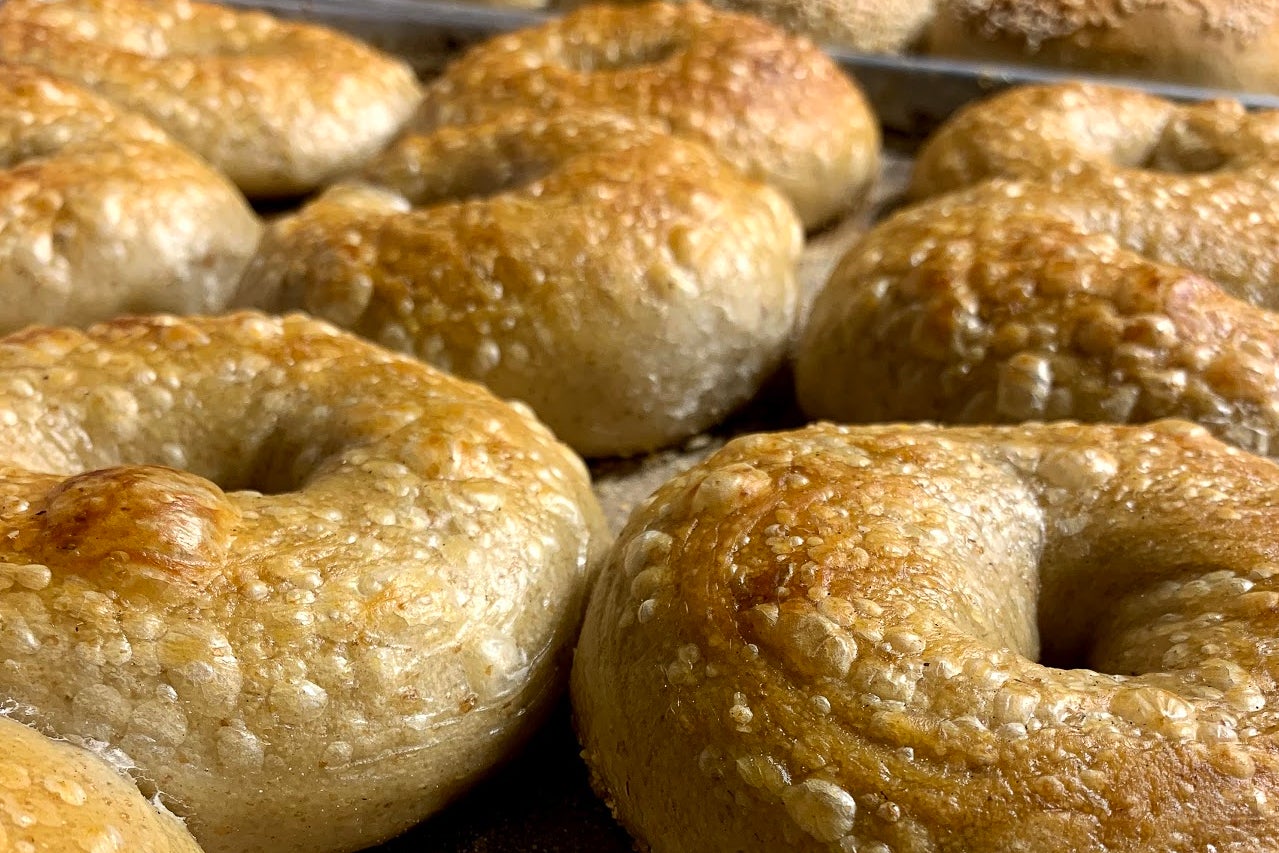
“Our volume is way down,” said Dolich. “We’re really much less efficient in what we can produce in the bakery.”
So Dolich came up with a plan to ask the public to bankroll donations to area hospitals. While the general public can’t get his croissants, doctors and nurses can.
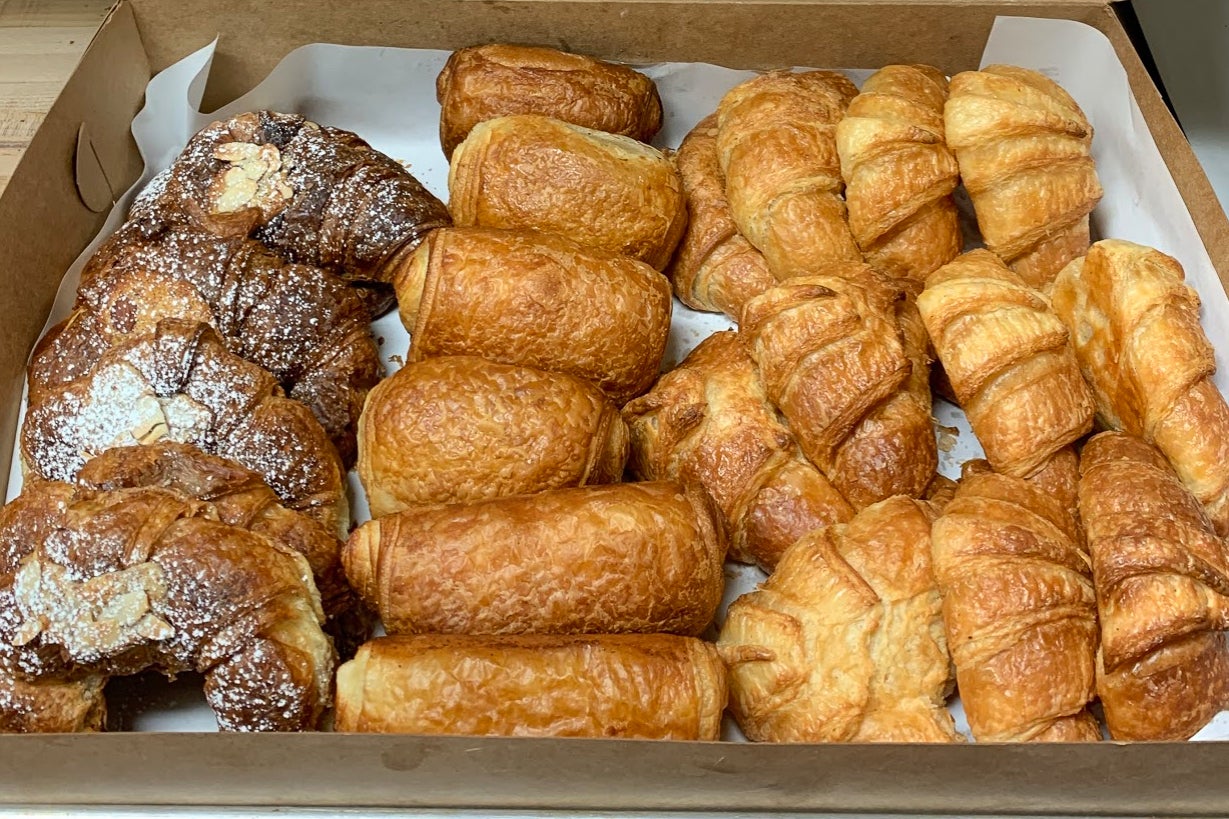
“We have the ability to produce croissants, but there’s no market for it,” he said. “We just decided: let’s give it away and maybe people will contribute to that giveaway. So people can support the bakery, and support the people out there stressing for us.”
Dolich hopes to reopen his bakery with a touchless system, where customers and staff will never physically interact and transactions can be done outside the store. Until he figures out how to do that, most of his bread production will be sent to front-line medical staff.
WHYY is your source for fact-based, in-depth journalism and information. As a nonprofit organization, we rely on financial support from readers like you. Please give today.



![CoronavirusPandemic_1024x512[1]](https://whyy.org/wp-content/uploads/2020/03/CoronavirusPandemic_1024x5121-300x150.jpg)


